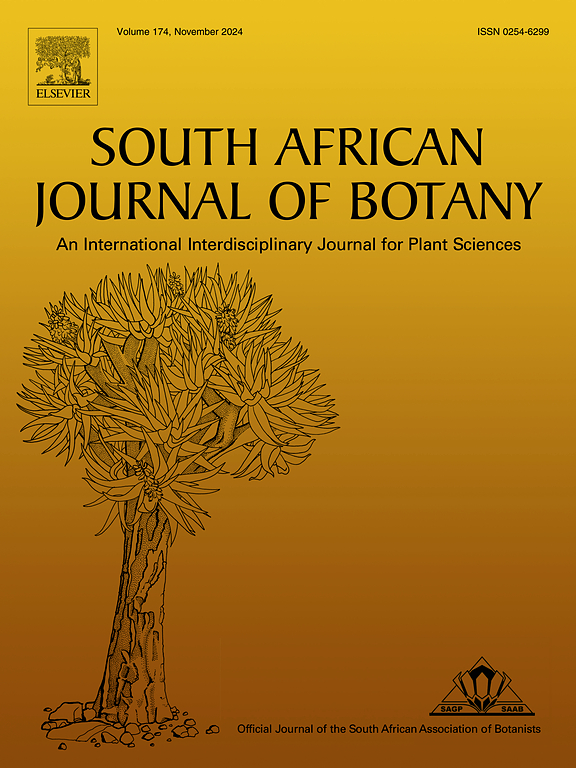为圆筒形丝瓜(Luffa cylindrica (L.) Roem)开发高效、可重复的体外再生和转化协议
IF 2.7
3区 生物学
Q2 PLANT SCIENCES
引用次数: 0
摘要
为了建立高效的离体再生系统,为进一步研究奠定基础,研究了脱壳、植物激素、外植体位置、感染参数等因素对丝瓜子叶离体再生的影响。结果表明,诱导丝瓜子叶不定芽的最佳培养基为 Murashige and Skoog (MS) + Thidiazuron (TDZ) 0.3 mg-L-1+ Indole-3-Butyric acid (IBA) 0.02 mg-L-1+ AgNO3 2 mg-L-1+ sucrose 3 %,诱导率达到 95.83 %。然而,不同的子叶切割方法会导致不同的不定芽再生率。利用该再生系统,农杆菌介导的转化法成功地将 ACS7 基因转入丝瓜。本文章由计算机程序翻译,如有差异,请以英文原文为准。
Development of an Efficient and Reproducible in Vitro Regeneration and Transformation Protocol for Luffa cylindrica (L.) Roem
To establish an efficient in vitro regeneration system and lay a foundation for further research, the effects of shelling, plant hormones, explant position, infection parameters and other factors on the in vitro regeneration of luffa cotyledons were studied. The results showed that the best medium for inducing adventitious buds from luffa cotyledons was Murashige and Skoog (MS) + Thidiazuron (TDZ) 0.3 mg·L−1+ Indole-3-Butyric acid (IBA) 0.02 mg·L−1+ AgNO3 2 mg·L−1+ sucrose 3 %, and the induction rate reached 95.83 %. However, different cotyledon cutting methods resulted in different regeneration rates of adventitious buds. Using this regeneration system, the ACS7 gene was successfully transferred into luffa by Agrobacterium-mediated transformation.
求助全文
通过发布文献求助,成功后即可免费获取论文全文。
去求助
来源期刊

South African Journal of Botany
生物-植物科学
CiteScore
5.20
自引率
9.70%
发文量
709
审稿时长
61 days
期刊介绍:
The South African Journal of Botany publishes original papers that deal with the classification, biodiversity, morphology, physiology, molecular biology, ecology, biotechnology, ethnobotany and other botanically related aspects of species that are of importance to southern Africa. Manuscripts dealing with significant new findings on other species of the world and general botanical principles will also be considered and are encouraged.
 求助内容:
求助内容: 应助结果提醒方式:
应助结果提醒方式:


